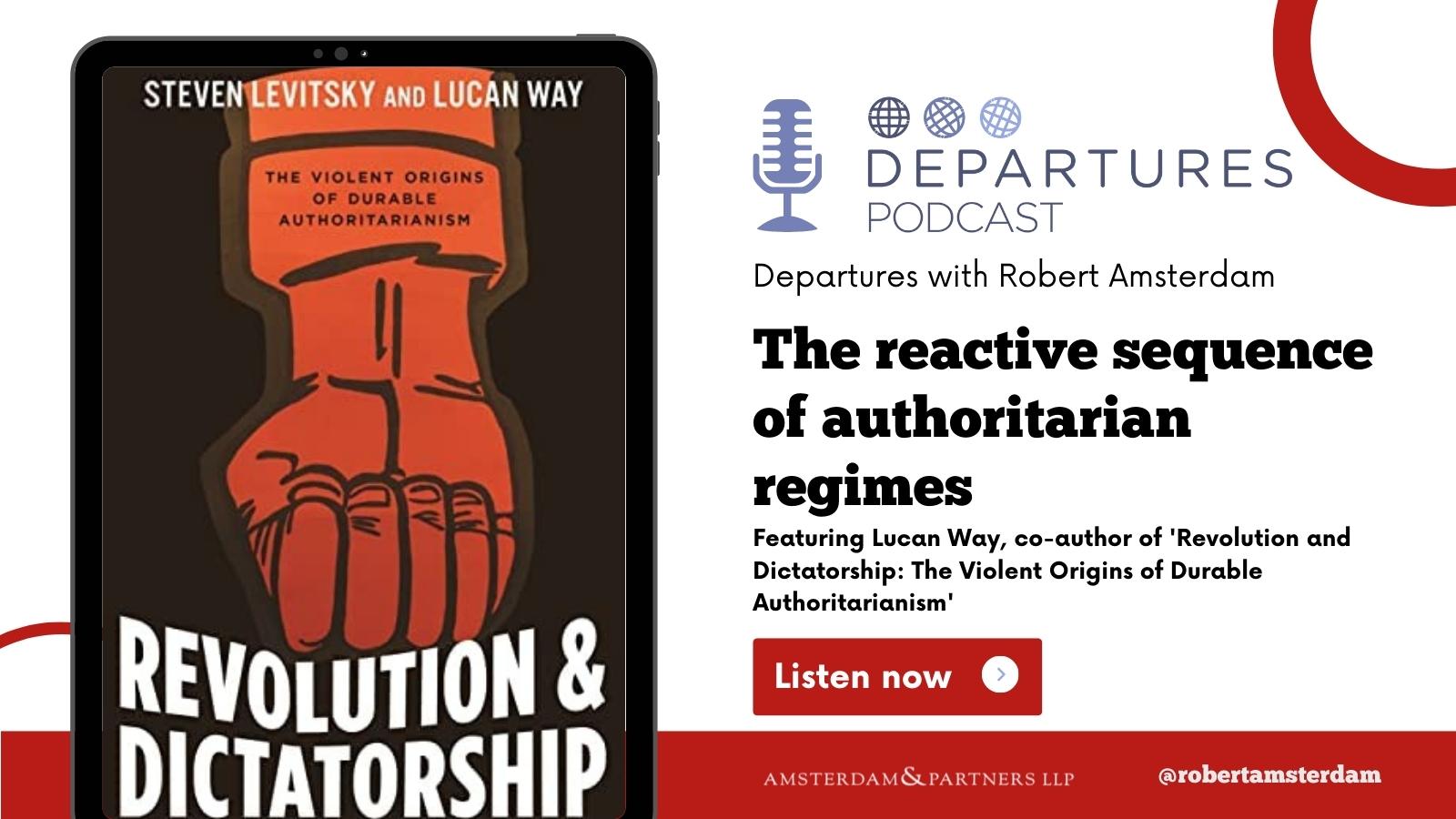Departures Podcast with Lucan Way, co-author of ‘Revolution and Dictatorship’

Some autocracies come and go, but others have a seemingly infinite shelf-life, showing a structural resiliency to any efforts at reform or democratic change that is strong, durable, and long lasting.
More than 20 years ago, the rock star political scientists Lucan Way and Steven Levitsky wrote a paper examining the characteristics of successful autocratic countries, and advanced a hugely influential theory of competitive authoritarianism and hybrid regimes. Now, in 2022, they are back with a terrific new book called, “Revolution and Dictatorship: The Violent Origins of Durable Authoritarianism,” which explores why the violent social revolutions in countries like China, Cuba, Iran, the Soviet Union, and Vietnam led to durable regimes.
Co-author Lucan Way, a professor at the University of Toronto, joins the Departures podcast today to discuss the book with Robert Amsterdam, exploring their idea called the “reactive sequence,” referring to how the intensity of international reaction and pressure ends up strengthening these regimes.
Prof. Way and Amsterdam discuss how this relates to the current predicament of balancing sanctions with accommodation, and how successful foreign policy and support for improving rule and law democracy lies somewhere in between.











